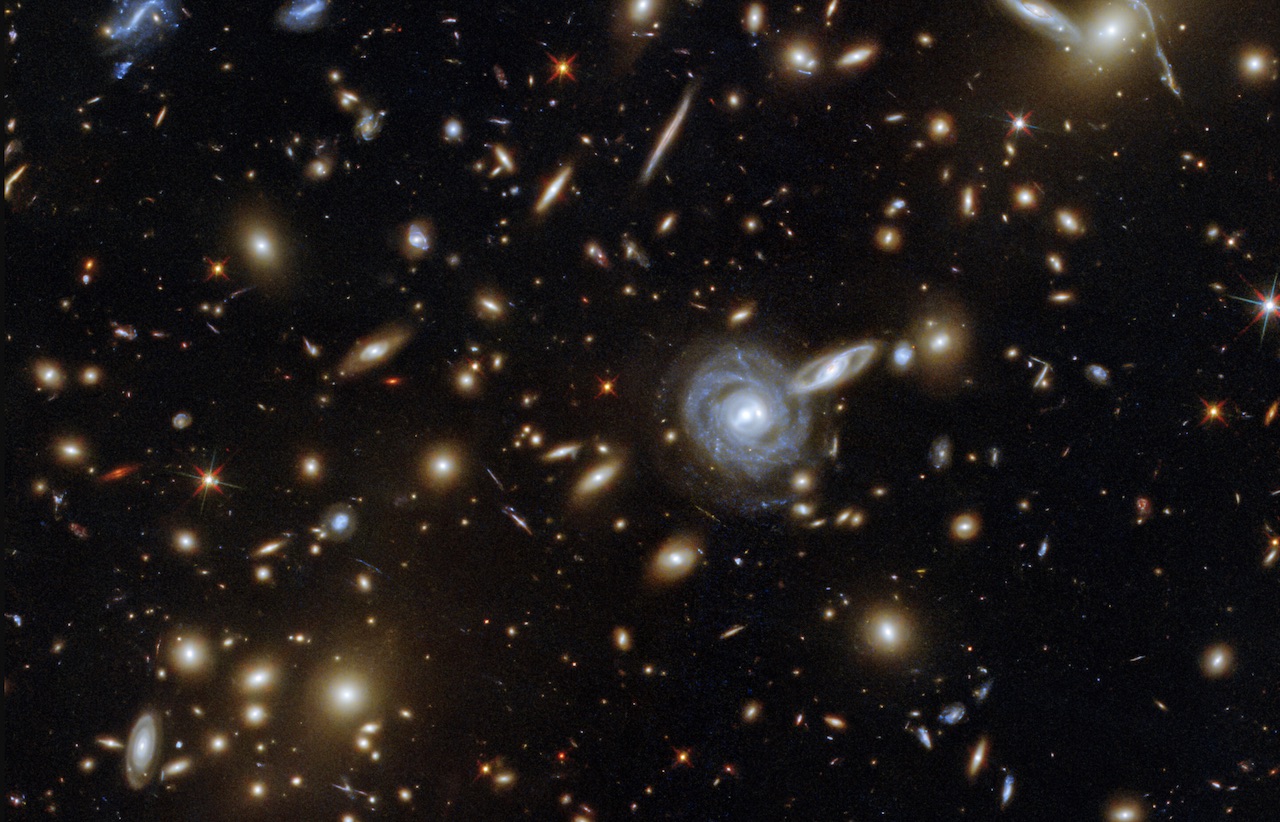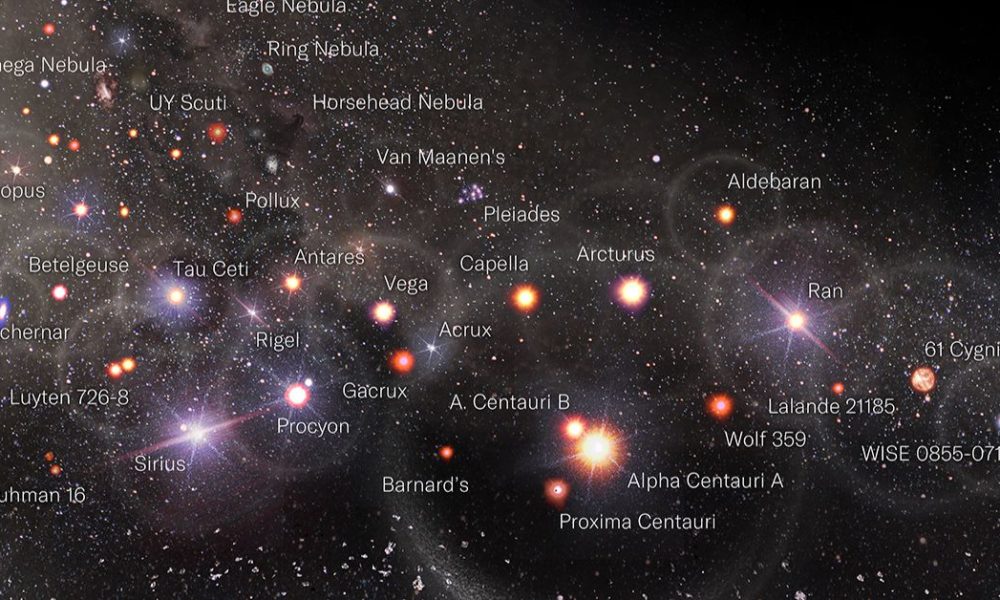How Many Galaxies In The Universe: Counting The Cosmos
Have you ever gazed up at the night sky and wondered about the sheer scale of what lies beyond our planet? It's a natural thing to do, you know. We often think about our own solar system, perhaps even our home galaxy. But then, a much bigger question pops into mind: how many galaxies in the universe are there, really?
The universe, in some respects, is practically everything. It holds all of space, and also all of time. Within this immense expanse, you find all its contents. This includes planets, stars, and, of course, galaxies. It's a truly vast and awe-inspiring concept.
This article will explore what we currently know about the number of galaxies out there. We will look at what galaxies are, how many we think exist, and what that means for the number of stars. It's quite a thought, honestly, to grasp such large numbers.
Table of Contents
- Understanding the Universe and Galaxies
- The Incredible Number of Galaxies
- Our Milky Way Galaxy
- Galaxies and the Stars They Hold
- The Movement of Galaxies and an Expanding Universe
- Questions We Still Have
- Frequently Asked Questions
Understanding the Universe and Galaxies
The universe, as we touched on, is everything. It contains space, time, and all their contents. This means planets, stars, and galaxies are all part of it. It's a rather complete picture of existence, in a way.
Galaxies, it turns out, are immense structures. They are made up of stars, and also gas. You find dust within them, too. Stellar remnants are there, and also dark matter. These parts all come together to form these huge cosmic islands.
These galaxies just make up small portions of this overall space. They hold within them stars, and also planets. Asteroids are found there, and other bodies in space. So, they are really like big cosmic neighborhoods, you know.
Our own Milky Way galaxy is just one of these structures. It is one of the billions of galaxies now known to exist. This gives you a sense of scale, doesn't it? Our home is a tiny part of something much, much bigger.
The Incredible Number of Galaxies
So, how many galaxies are there in the universe? This is the big question. Key facts and a summary point to a truly astounding number. There are at least 100 billion galaxies in the universe. That is a very large number to think about.
This figure, 100 billion, is a minimum estimate. It means there could be even more. This makes our universe seem incredibly rich with these star-filled structures. It's almost hard to picture so many of them.
Billion of galaxies exist in our universe. This is a fact that has become clearer over time. Our Milky Way is just one of them. It's a pretty humbling thought, honestly, to be part of such a vast collection.
The sheer number of galaxies suggests a universe full of diverse cosmic environments. Each galaxy, you see, is a world in itself, holding countless stars and systems. This truly shows the scale of everything.
Our Milky Way Galaxy
Our own Milky Way galaxy, as we mentioned, is just one of the billions of galaxies. It is now known to exist among so many others. This helps us understand our place in the universe, in a way.
The Milky Way is a spiral galaxy. Spiral galaxies are the most common type found throughout the universe. They possess some of the most beautiful features out of the four types of galaxies. They look quite striking.
This means our home galaxy shares characteristics with many others. It has those sweeping arms of stars, gas, and dust. This makes it a typical, yet still special, example of a galaxy, so to speak.
Learning about our Milky Way helps us learn about other galaxies, too. It gives us a local example of these massive structures. This helps us grasp what we might find in the other billions of galaxies out there.
Galaxies and the Stars They Hold
If there are at least 100 billion galaxies in our universe, then that means something amazing for stars. It means there are over 1 billion trillion stars in the universe as well. This number is almost beyond belief.
Think about that for a moment. Each of those 100 billion galaxies holds many stars. When you multiply that out, you get to a truly staggering total. It's a pretty mind-boggling figure, frankly.
This huge number of stars means there are countless suns. Each could potentially have planets orbiting it. This, in a way, justifies their probable existence. It suggests a universe teeming with possibilities.
The stars within galaxies are the bright points we see. They are the powerhouses of light and heat. They are what make galaxies shine across vast distances. So, their numbers are really important.
The Movement of Galaxies and an Expanding Universe
Everything in the universe is in motion. This appears to be a consistent truth. Galaxies, for instance, move away from each other. This motion is a key part of how the universe behaves.
The universe is not only expanding, but it is also accelerating its expansion. This means galaxies move away from each other at an increasing speed. It's a rather dynamic place, you know.
This movement and expansion affect how we observe distant galaxies. Light from them travels for a very long time to reach us. This gives us a look back in time, actually, to earlier stages of the universe.
The idea of galaxies moving apart might seem strange. But it is a well-established part of modern astronomy. It helps us understand the large-scale structure and evolution of the cosmos. See the SEDS Messier Catalog for more on some of these amazing objects.
Questions We Still Have
The universe might just well last forever. This is one idea, anyway. But one thing is true: we are very far from answering some of the biggest questions. There is still so much we do not know.
We know there are billions of galaxies. We know they are moving. Yet, the ultimate fate of the universe remains a mystery. We are still figuring out many of the details, so to speak.
Our knowledge grows with new tools and ideas. But the universe is so immense. It holds secrets that will take a very long time to uncover. It's an ongoing process of discovery, you know.
Understanding how many galaxies in the universe is a big step. But it opens up even more questions about what each of those galaxies holds. And what lies beyond what we can currently see. It's a fascinating thought, to be honest.
Frequently Asked Questions
How big is the universe?
The universe is practically everything, from space, time, and their contents. It is incredibly vast. We can only observe a portion of it, but it appears to be truly immense. It keeps getting bigger, too.
What is the universe made of?
The universe contains planets, stars, and galaxies. It also includes gas, dust, stellar remnants, and dark matter. These are the main components we know about. There might be more, of course.
How many stars are in the universe?
If there are at least 100 billion galaxies in our universe, then that means there are over 1 billion trillion stars in the universe as well. This is a truly massive number. It is hard to even picture that many stars.

How Many Galaxies Are There? | Space

2,172 Likes, 5 Comments - Galaxies (@galaxies) on Instagram: “• 2

Universe Galaxies